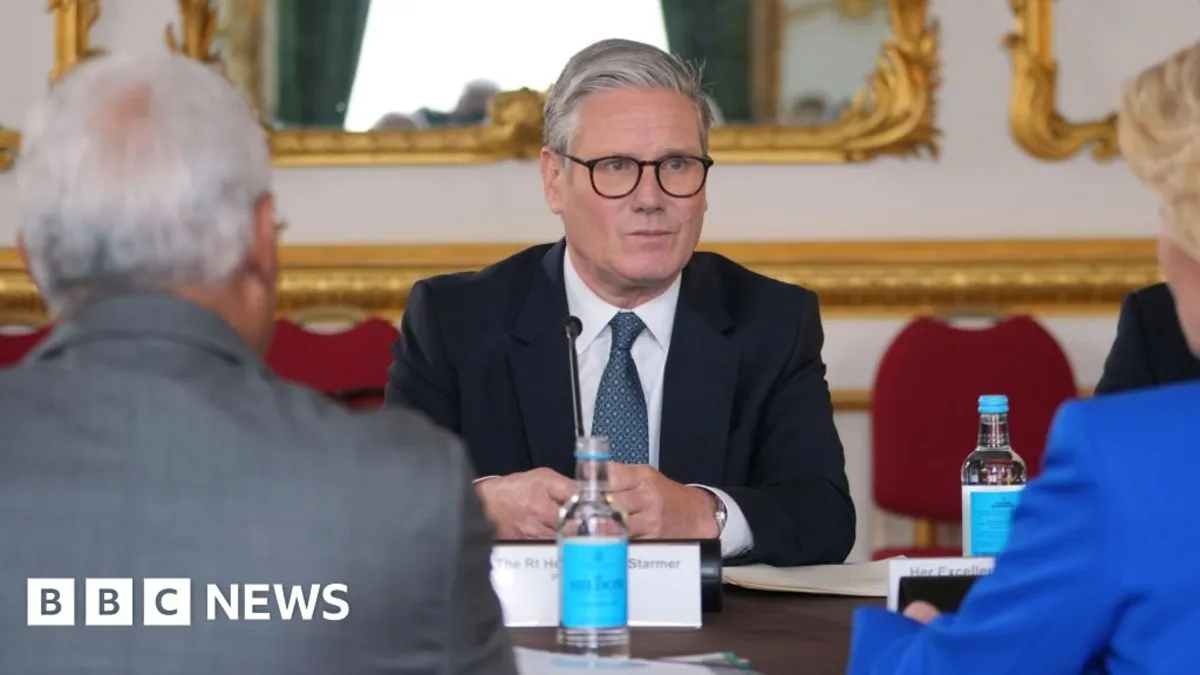
This is undeniably a significant deal for the UK and the European Union. However, in a somewhat ironic twist, for Sir Keir Starmer to achieve success, he needs this agreement to appear as inconsequential and non-controversial as possible. For many political figures, delving into the details of this agreement may evoke nostalgia or even trigger deep-seated emotions. Terms like dynamic alignment, sanitary and phytosanitary checks, fishing quotas, and the jurisdiction of the European Court of Justice in Luxembourg have dominated British politics for much of the past decade.
These concepts and trade-offs were pivotal as the UK navigated its complex divorce from the EU, transforming what were once technical questions into deeply political issues that shaped the post-Brexit relationship. Sir Keir's bold assertion is that the public might have moved beyond these contentious discussions. During a recent press conference alongside EU leaders Ursula von der Leyen and Antonio Costa, the Prime Minister emphasized the need to move past the stale debates that characterized the Brexit years.
It is important to note that the 2016 referendum was not the sole political mandate concerning the UK’s relationship with the EU. Labour's general election manifesto from last year promised improvements to the Brexit deal, signaling a commitment to enhancing the terms of engagement with Europe. The prevailing view within the government suggests that there is little public demand to revisit the major Brexit issues, such as membership in the single market and customs union. Instead, the focus is on making the relationship smoother within these existing frameworks, a move viewed as a matter of pragmatic common sense.
However, pragmatism is subjective. The Conservative Party has criticized the deal, labeling it as a form of surrender. They have raised concerns over the 12-year extension of existing fishing quotas and the UK's commitment to adhere to EU agricultural rules. Similarly, Reform UK, which can be seen as the successor to the Brexit Party and UKIP, has echoed these sentiments, opposing the terms of the agreement.
On the flip side, the Liberal Democrats have acknowledged some initial positive steps in the deal but have urged the Prime Minister to adopt a more ambitious stance. Their advocacy centers around the idea that the UK should rejoin the EU's customs union, which is an agreement among member states to avoid imposing tariffs on each other's goods.
What will be particularly revealing in the coming days, weeks, and months is not only how opposition parties respond to this agreement but also the extent to which they choose to campaign on these issues. If opposition to the current deal becomes a central theme in their platforms, it could indicate that they believe there is still considerable controversy surrounding the decades-long debate over the UK's relationship with the EU.
If this scenario unfolds, the main significance of today’s agreement may lie in its potential to thrust Brexit-related questions back into the heart of political discourse. Conversely, if Sir Keir is correct that the majority of the public desires minimal friction with the EU, he may indeed emerge as the first truly post-Brexit Prime Minister, navigating a new era in UK-EU relations.